In last summer’s congressional debate over the Iran nuclear deal—the Joint Comprehensive Plan of Action (JCPOA)—one of the more hotly debated issues was whether the deal would decrease or increase the likelihood that countries in the Middle East would pursue nuclear weapons.
Supporters of the JCPOA argued that, by removing the risk of a nuclear-armed Iran, it will reduce incentives for countries of the region to acquire nuclear arms. Opponents of the deal—not just in the United States but also abroad, especially Israel—claimed that the JCPOA would increase those incentives because it would legitimize enrichment in Iran, allow Iran to ramp up its nuclear capacity when key restrictions expire after 10 and 15 years, and boost the Iranian economy and the resources Iran could devote to a weapons program.
I strongly believe the JCPOA will significantly reduce prospects for proliferation in the Middle East (and as my colleague Richard Nephew explains in another post out today, there are things the United States and other powers can do to help reduce that prospect further). But uncertainties about the future of the JCPOA and the region will persist for quite some time—and these uncertainties could motivate regional countries to keep their nuclear options open. They may ask themselves a variety of questions in the years ahead: Will the JCPOA be sustainable over time? Will it unravel over concerns about compliance? Will it withstand challenges by opponents in Tehran and Washington? Will it survive leadership transitions in the United States and Iran? Will Iran ramp up its fissile material production capacities when key restrictions expire? Will it then break out of the JCPOA and seek to build nuclear weapons? Will Iran continue to threaten the security of its neighbors in the years ahead? And will the United States maintain a strong regional military presence and be seen by its partners as a reliable guarantor of their security?
I strongly believe the JCPOA will significantly reduce prospects for proliferation in the Middle East.
Richard and I studied how these and other questions might affect nuclear decision-making in the Middle East. In particular, we evaluated the likelihood that key states will pursue nuclear weapons, or at least enrichment or reprocessing programs that could give them a latent nuclear weapons capability. We focused on four states often regarded as potential candidates to join the nuclear club: Saudi Arabia, the United Arab Emirates, Egypt, and Turkey.
Saudi Arabia
Of the four, Saudi Arabia is the most highly motivated to pursue nuclear weapons. It sees Iran as an implacable foe that is intent on destabilizing its neighbors, achieving regional hegemony, and upending the Kingdom’s internal order. At the same time, the Saudis have lost much confidence in the U.S. commitment to the security of its regional partners. In part as a result, the new Saudi leadership has taken a more assertive, independent role in regional conflicts, especially in Yemen. But despite their reservations about the United States, the Saudis know they have no choice but to rely heavily on Washington for their security—and they know they would place that vital relationship in jeopardy if they pursued nuclear weapons.
The Saudis clearly have sufficient financial resources to make a run at nuclear weapons. But acquiring the necessary human and physical infrastructure to pursue an indigenous nuclear program would take many years.
Given the Kingdom’s difficulty in developing an indigenous nuclear weapons capability, speculation has turned to the possibility that it would receive support from a foreign power, usually Pakistan, which received generous financial support from Saudi Arabia in acquiring its own nuclear arsenal. But while rumors abound about a Pakistani commitment to help Saudi Arabia acquire nuclear weapons, the truth is hard to pin down. If such a Saudi-Pakistani agreement was ever reached, it was probably a vague, unwritten assurance long ago between a Pakistani leader and Saudi king, without operational details or the circumstances in which it would be activated. In any event, the Saudis would find it hard to rely on such an assurance today, when Pakistanis are trying to put the legacy of A.Q. Khan behind them and join the international nonproliferation mainstream.
United Arab Emirates (UAE)
Like Saudi Arabia, the UAE believes Iran poses a severe threat to regional security and has become more aggressive since the completion of the JCPOA. And like the Saudis, the Emiratis have lost considerable confidence in the reliability of the United States as a security guarantor. But also like the Saudis, the Emiratis are reluctant to put their vital security ties to the United States in jeopardy.
[L]ike the Saudis, the Emiratis have lost considerable confidence in the reliability of the United States as a security guarantor.
Moreover, the Emiratis are heavily invested in their ambitious nuclear energy program—with efforts currently underway, with the help of a South Korean-led consortium, to construct four nuclear power reactors—and they know this project would be dead in the water if they opted for nuclear weapons.
The Emiratis have also been a leading regional supporter of nonproliferation. In their bilateral agreement for civil nuclear cooperation with the United States, they formally renounced the acquisition of enrichment or reprocessing capabilities (the so-called “gold standard”), effectively precluding the pursuit of nuclear weapons. After the JCPOA permitted Iran to retain its enrichment program, the UAE, faced with criticism domestically and from some Arab governments for having given up its nuclear “rights,” said it may reconsider its formal renunciation of enrichment. But subsequently, Emirati officials have made clear that their nuclear energy plans have not changed and that they have no intention to pursue enrichment or reprocessing.
Egypt
Egypt is on everyone’s short list of potential nuclear aspirants—in part because of its former role as leader of the Arab world and its flirtation with nuclear weapons in the Gamal Abdel Nasser years. But while Egypt and Iran have often been regional rivals, Egypt does not view Iran as a direct military threat. Instead, Egypt’s main concerns include extremist activities in the Sinai, the fragmentation of Iraq and Syria, disarray in Libya—and the adverse impact of these developments on Egypt’s internal security. The Egyptians recognize that none of these threats can be addressed by the possession of nuclear weapons.
Although Russia is committed to work with Egypt on its first nuclear power reactor, Cairo’s nuclear energy plans have experienced many false starts before, and there is little reason to believe the outcome will be different this time around, especially given the severe economic challenges the Egyptian government currently faces. Moreover, although Egypt trained a substantial number of nuclear scientists in the 1950s and 1960s, its human nuclear infrastructure atrophied when ambitious nuclear energy plans never materialized.
Turkey
Because of its emergence in the last decade as a rising power, its large and growing scientific and industrial basis, and its ambition to be an influential regional player, Turkey is also on everyone’s short list of potential nuclear-armed states. But Turkey has maintained reasonably good relations with Tehran, even during the height of the sanctions campaign against Iran. Although the two countries have taken opposing sides in the Syria civil war, Turkey, like Egypt, does not regard Iran as a direct military threat. Indeed, Ankara sees instability and terrorism emanating from the Syrian conflict as its main security concerns—and nuclear weapons are not viewed as relevant to dealing with those concerns.
Current tensions with Russia over Turkey’s November 2015 shoot-down of a Russian fighter jet are another source of concern in Ankara. But the best means of addressing that concern is to rely on the security guarantee Turkey enjoys as a member of NATO. While Turkish confidence in NATO has waxed and waned in recent decades, most Turks, especially in the military, believe they can count on NATO in a crisis, and they would be reluctant to put their relationship with NATO at risk by pursuing nuclear weapons.
Former nuclear aspirants
For the sake of completeness, our study also looked at regional countries that once actively pursued nuclear weapons but were forced to abandon their programs: Iraq, Libya, and Syria. But we concluded that, given the civil strife tearing those countries apart, none of them was in a position to pursue a sustained, disciplined nuclear weapons effort.
Bottom line
Our study found that the Iran nuclear deal has significantly reduced incentives for countries of the Middle East to reconsider their nuclear options. At least for the foreseeable future, none of them is likely to pursue nuclear weapons or even latent nuclear weapons capabilities—or to succeed if they do.
Editors’ Note: Bob Einhorn and Richard Nephew spoke about their new report at a recent Brookings event. You can see the video from the event here.
The Brookings Institution is committed to quality, independence, and impact.
We are supported by a diverse array of funders. In line with our values and policies, each Brookings publication represents the sole views of its author(s).

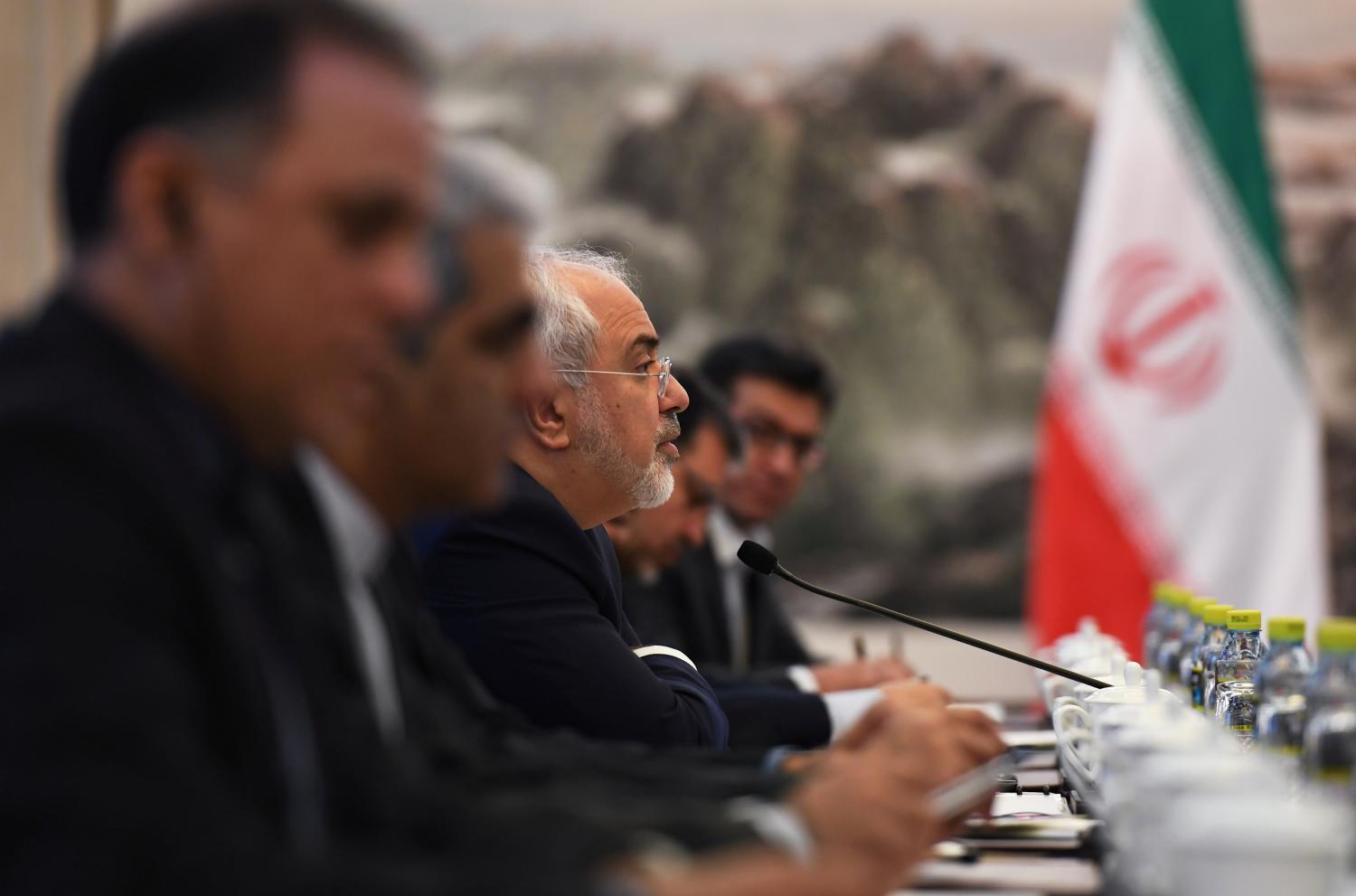
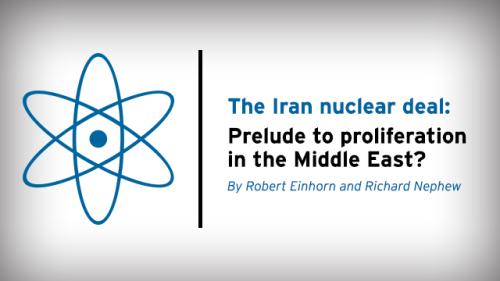
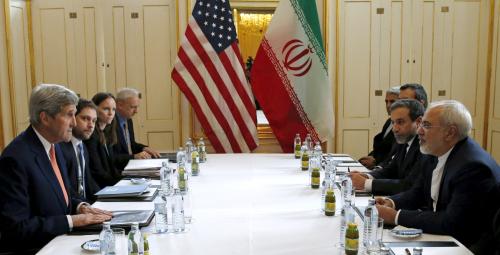
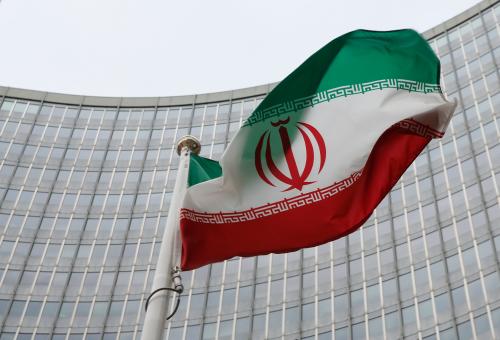
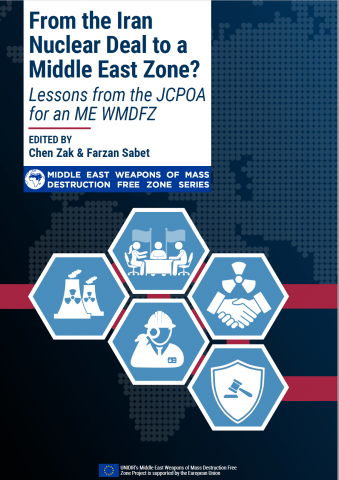

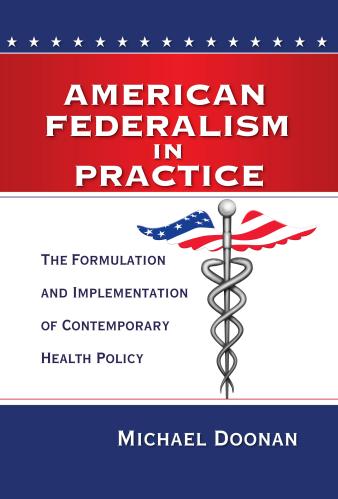




Commentary
Iran’s regional rivals aren’t likely to get nuclear weapons—here’s why
June 2, 2016